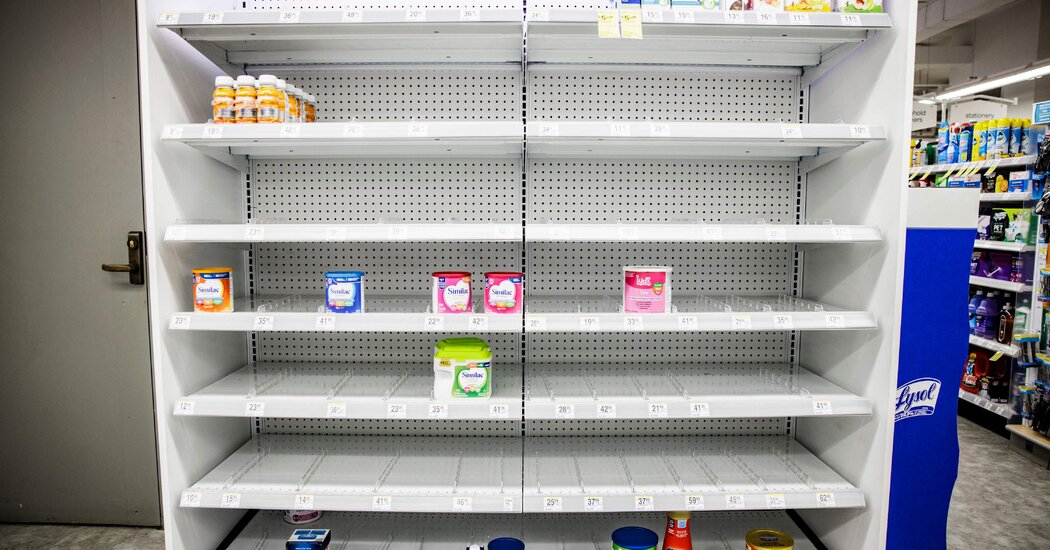A severe shortage of baby formula has prompted the Federal Trade Commission to begin an inquiry into the industry’s consolidation and whether online resellers have taken advantage of desperate families struggling to find formula.
“The F.T.C. is launching a public inquiry to identify the factors that contributed to the shortage or hampered our ability to respond to it,” Lina M. Khan, the agency’s chair, said in a statement on Tuesday. “Learning from this experience can help determine how we can minimize the risk of similar shortages in the markets for other life-sustaining products.”
The agency said it would examine patterns of mergers and acquisitions to better understand how the industry — which is now dominated by four manufacturers — became so concentrated and how that consolidation should inform future merger reviews. The F.T.C. will also examine federal regulations and trade barriers that prevent foreign companies from entering the infant formula market.
Read More on the Baby Formula Shortage
Federal officials are also seeking public input about instances in which families believe they have been scammed when trying to buy formula or been forced to pay exorbitant prices from online resellers.
The U.S. infant formula industry has come under intense scrutiny in recent weeks, with lawmakers and consumer advocates questioning why the production of a critical source of infant nutrition has long been controlled by only a handful of players. Abbott Nutrition, which controls about 48 percent of the market, threw the baby formula market into disarray in February when it voluntarily recalled some of its most popular powdered formulas and shut down a plant after four babies who had consumed some of Abbott’s products became sick with bacterial infections. Abbott has said there is no evidence that its formula caused the four illnesses, and no samples of the bacteria, Cronobacter sakazakii, from the infants have matched strains found at the plant.
The dire shortages have left parents frantically searching for food for their children and stores limiting sales of infant formula. The Biden administration has taken steps to ease the lack of supply, including by invoking the Defense Production Act to ramp up manufacturing.
The inquiry follows growing calls from lawmakers to investigate and overhaul the industry. Senator Tammy Duckworth, an Illinois Democrat, urged the F.T.C. this month to start an expansive study into the industry and the market conditions that have led to the shortages.
Navigating the Baby Formula Shortage in the U.S.
A growing problem. A nationwide shortage of baby formula — triggered in part by supply-chain issues and worsened by a recall by the baby food manufacturer Abbott Nutrition — has left parents confused and concerned. Here are some ways to manage this uncertainty:
The F.T.C. said it would work with the Agriculture Department to examine the impact of a program that aims to help low-income families buy formula and that has helped big companies with contracts become giant players in the industry. The Special Supplemental Nutrition Program for Women, Infants and Children, better known as WIC, is a federally funded program that provides grants to states to ensure that low-income pregnant or postpartum women and their children have access to food. Administered by state agencies, the program buys more than half of all infant formula supply in the United States.
State WIC agencies legally cannot buy formula from any manufacturer. They are required to competitively bid for contracts and select one company, which becomes the exclusive provider of formula for all WIC recipients in the state. In return, manufacturers must give states significant discounts for formula.
Researchers say the bidding system could make it more difficult for smaller companies to enter the market. Brands that secure the exclusive contracts gain more prominence in stores, boosting sales among families who do not receive WIC benefits, according to research from David E. Davis, an economics professor at South Dakota State University.







